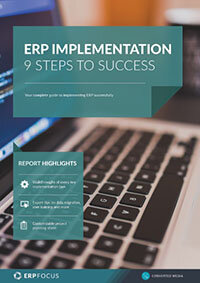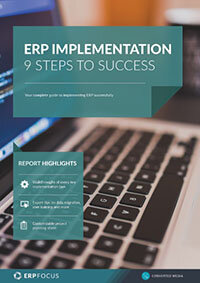What should be included in your ERP vendor's training package?
ERP training packages are one of the more important components of any implementation. Whether your business is selecting its first system or its tenth one, be sure that high quality training from your ERP vendor is included and performed.
Who will be trained?
The easy answer is everyone. This makes sense as the “E” stands for Enterprise. ERP touches the work life of all in the business and, of course, all will need basic ERP training. That said, engineers and purchasing teams should have in-depth and specific training in their unique disciplines. Buyers need training in how to place and manage a purchase order. They also need to know how purchasing relates with production, inventory management, engineering and the other departments in your organization. Make sure your vendor’s ERP training program can offer specialized support in these areas.
Whether you and your vendor choose direct vendor training or a ‘train the trainer’ approach, be sure that your training is enterprise-wide.
Refresher training
The needs of your business evolve over time. Individual’s skills decay as they rely on experience rather than training to make decisions. New people are hired and employees are promoted to new positions. Your ERP itself changes as new features are added and new technologies are incorporated into future revisions of the system. These are all reasons why refresher training is so important if a business plans to optimize the value of ERP.
Try to get your ERP vendor to provide an ongoing training plan for your business. There is no one right way to provide refresher training. But you owe it to next year’s users to be sure they use ERP to best benefit the organization.
Change management
Change from a comfortable work life with a legacy system to any new ERP can be difficult for many. Your vendor will have much more experience with change management than you have. Use their expertise to your advantage. Along with training in the ERP system, ask for change management guidance for users and for your management team.
"change management means first identifying potential disruptions, then managing through to acceptance of change and embodying the benefits."
For users, change management means first identifying potential disruptions, then managing through to acceptance of change and embodying the benefits. For management, it means accepting the inevitability of change trauma and a commitment to helping good users overcome this. Be sure to use your vendor’s help.
Flexibility in learning approach
Make sure that your vendor’s training uses techniques to fit all your users. If one is an auditory learner, the training method cannot be a document to be read and understood. Educators understand these unique styles in all of us. Your business success relies on training that works for every user.
Free white paper

ERP Implementation: 9 steps to success
The 9 proven steps you should follow when implementing ERP

Related articles
-

4 training tips for manufacturing ERP success
These four training tips will help your employees get the most out of your new manufacturing ERP ...
-

How the right ERP can help you launch a successful omnichannel business
Petersen Zhu, CEO of DigitBridge and Vibes Base, shares how to create a scalable omnichannel stra...
-

Change management for ERP implementation: a case study
A real-world example of the benefits of weaving change management into the fabric of an ERP imple...

